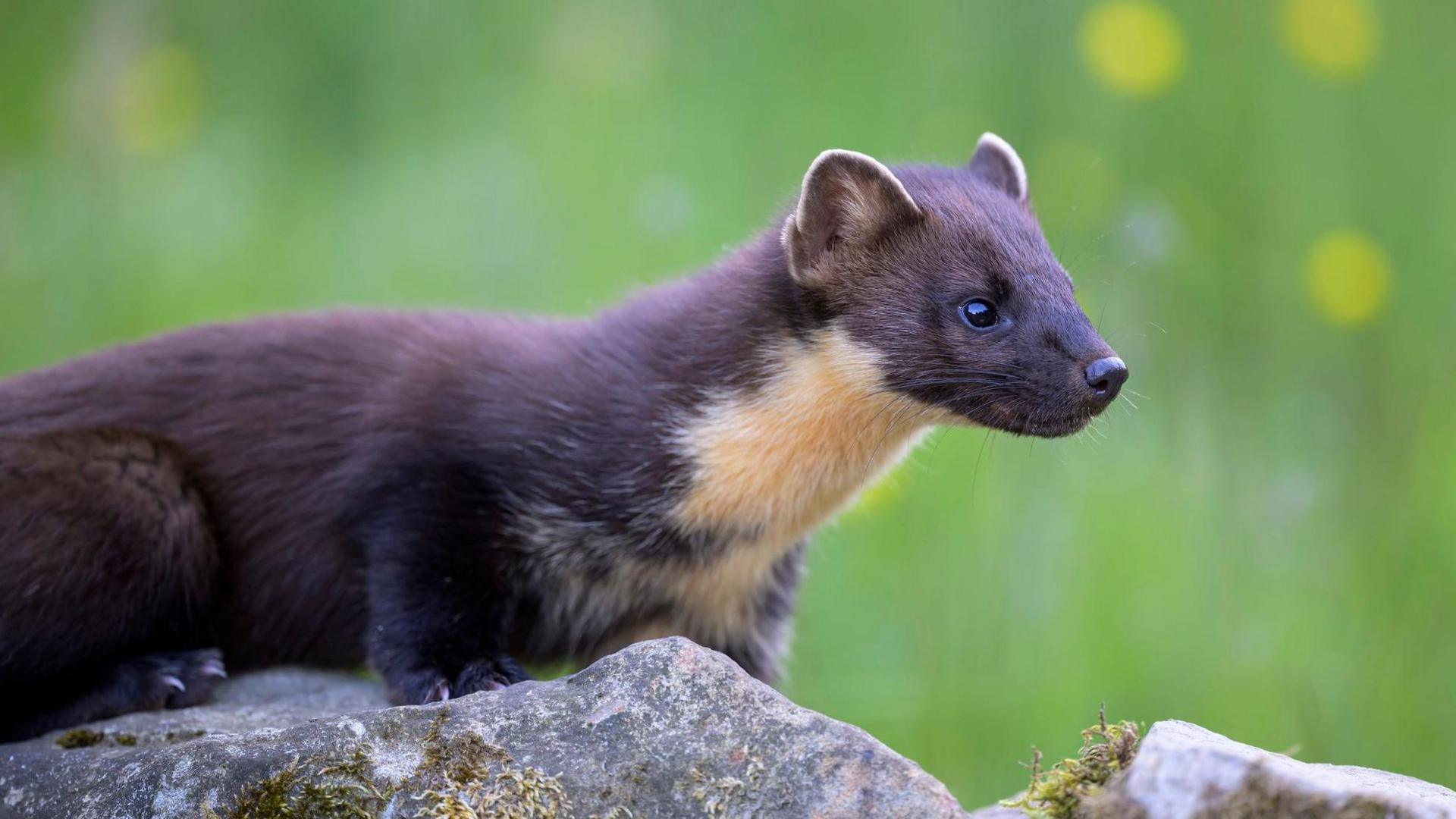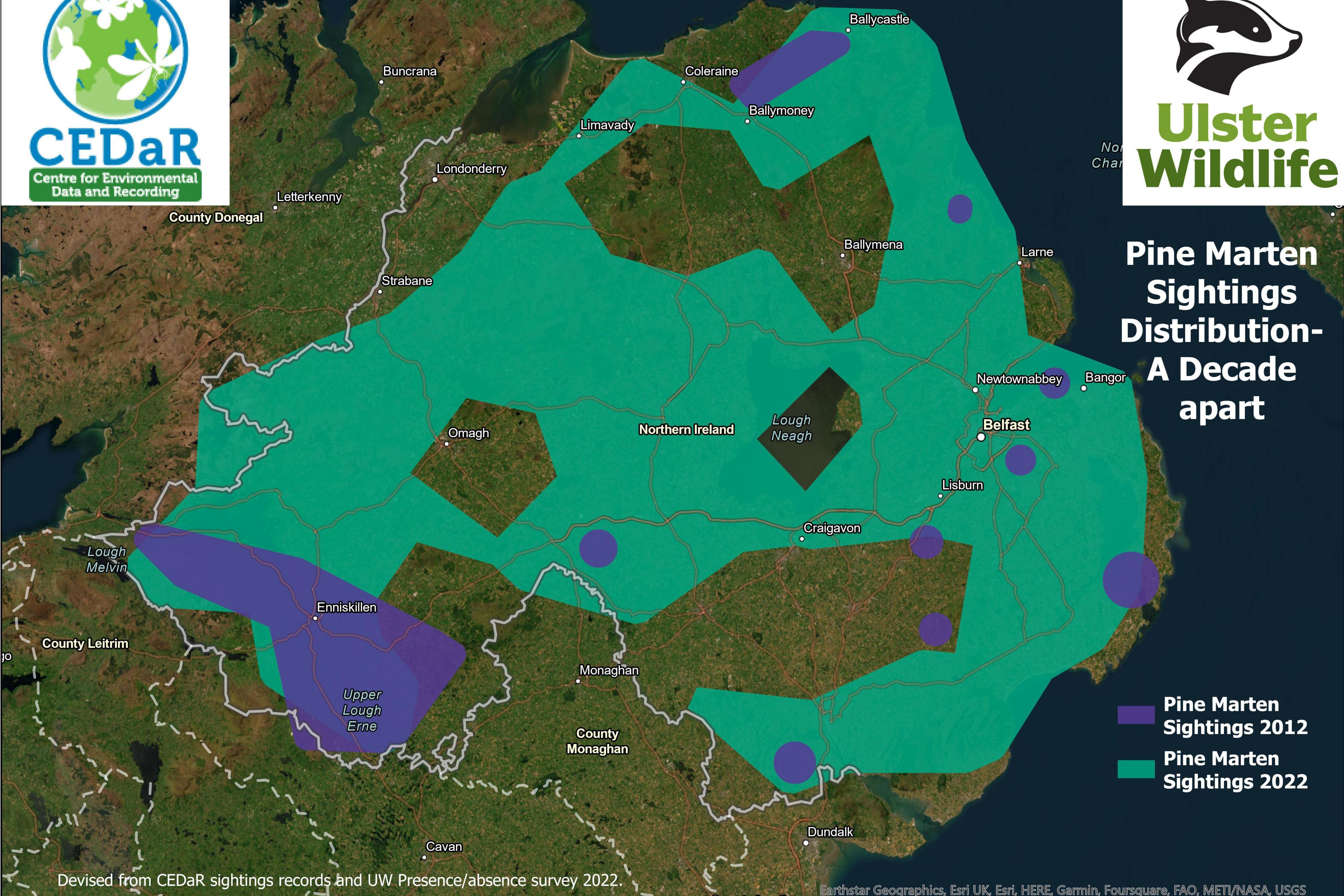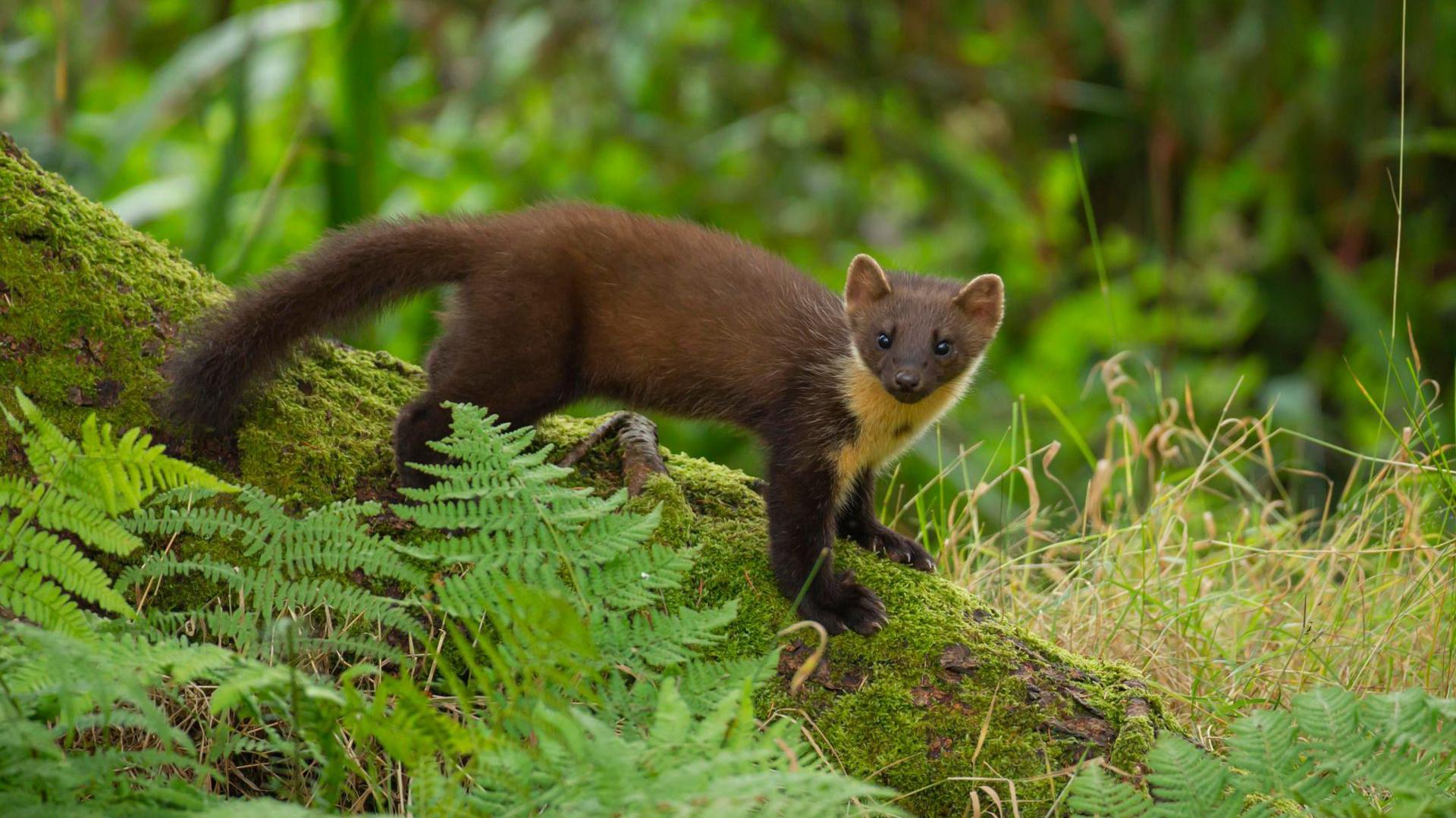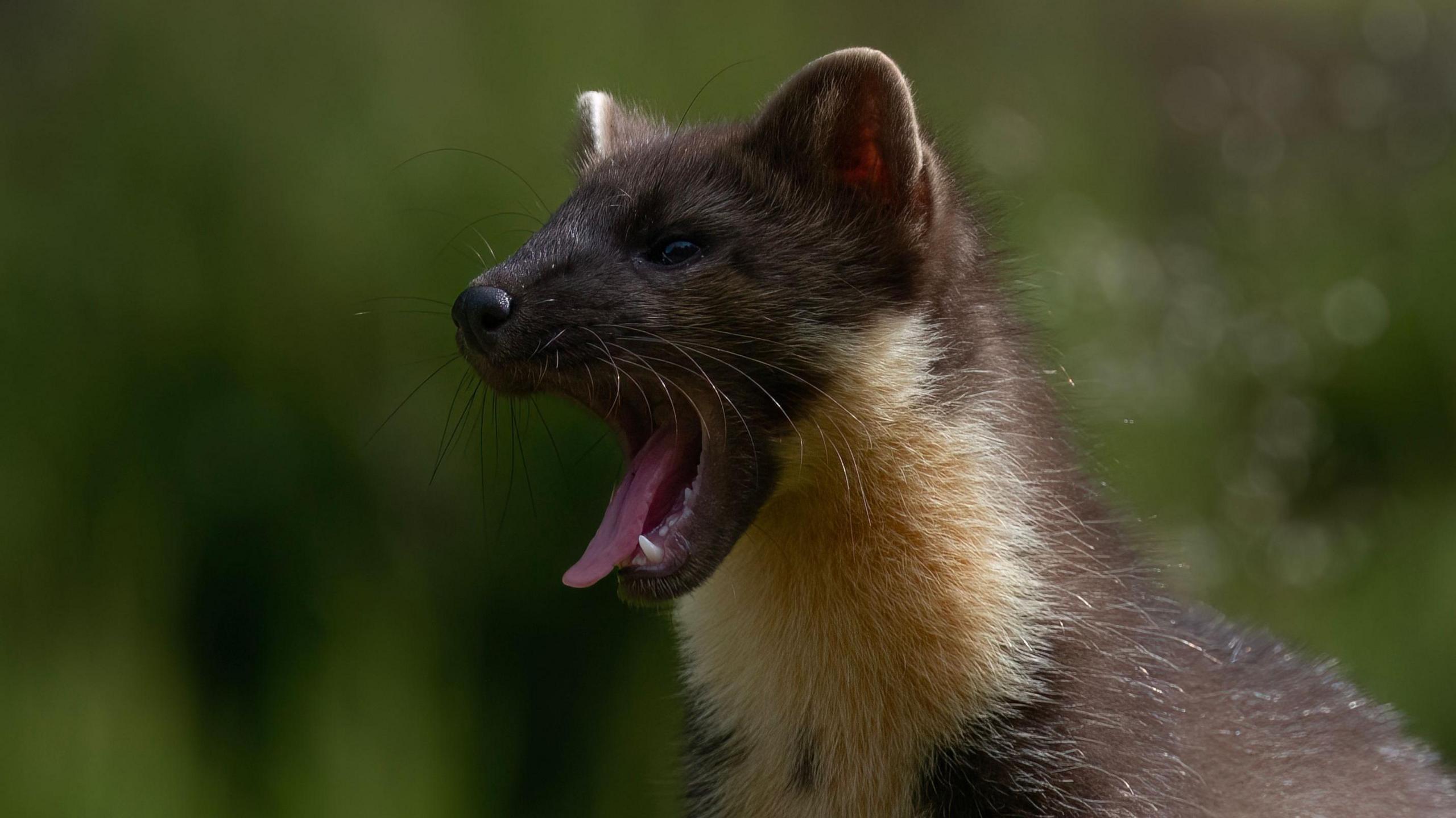From attics to gardens, pine martens on move in Northern Ireland

Once almost extinct in the country, pine martens are now found in all six counties of Northern Ireland
- Published
From attics in County Armagh to gardens in Lisburn and a busy, multi-lane road close to Belfast city centre, pine martens - one of Northern Ireland's rarest native mammals - have been turning up in some unusual places.
At one stage almost extinct in Northern Ireland, the pine marten clung on in the woodlands of County Fermanagh, the Glens of Antrim and the Mournes.
Now they're found in all six counties and increasingly crossing paths with humans.
The discovery of the body of a pine martin on Belfast's Albertbridge Road in July has been described as "astounding" by Ulster Wildlife.
"That means that this animal would have to cross this whole urban landscape to get all the way to near the Lagan Bridge," Ulster Wildlife's Ross McIlrath said.
"There have been reports of pine martens from Belvoir Forest on the outskirts of Belfast and as well in Redburn Country Park out towards Holywood."
Mr McIlrath said the animals have huge territories, with males roaming an area up to 25 square miles.
"It's almost certainly a young animal that's going out and looking for a new territory," he said.
"But moving into urban areas is a very big surprise.
"It probably is a one-off but we could well be seeing more of an urban species in the years to come if they keep doing so well."

The species has made a remarkable recovery in Northern Ireland in recent years
Dr David Tosh, a lecturer in Terrestrial Ecology at Ulster University, said pine martens have been turning up on the peripheries of Belfast for a number of years,
He said it was not a total surprise that one had been found deeper inside the city.
"Ireland has one of the lowest levels of woodland and forest cover in Europe," he said.
"So there just isn't the natural habitat for these species.
"If they had these spaces they wouldn't be coming out of them."
He said that could mean more sightings of pine martens in urban areas in the future.
"In Europe they have the stone marten - a very similar species and it would live in urban environments," he said.
"From what we know about the pine marten they're incredibly adaptable, so I don't see why they wouldn't be able to."

Dr David Tosh said pine martens have recently been found inside houses in counties Fermanagh and Armagh
Dr Tosh said throughout Ireland there had been an increase in pine martens using people's roof spaces to breed and stay in.
"In Fermanagh there's loads of instances, I've also been to County Armagh where people have had them in their houses," he said.
"So given the number of houses in Belfast, whether occupied or unoccupied, there's potential for them to find places to stay.
"If there's rubbish lying about they'll be nibbling on whatever they can find."
He said the spread of pine martens is nothing to be afraid of and that it was exciting to see the rise in numbers.
"They're smaller than most people's pet cats, they're not big beasts that would be roaming the streets," he added.
"This is them recovering themselves, so it's a good news story."

Dr Tosh said the spread of pine martens is nothing to be afraid of.
Paddy Lowry lives in south Belfast's Hampton Park, close to Belvoir Forest.
After a barbecue in June, he was in his kitchen with his son when they noticed an unusual visitor
"We'd left a bin bag a few yards away on the other side of the patio window and looked up to see this thing eating from the bag," he said.
"The next morning I shone a wildlife camera at the end of the garden and sure enough it showed up again that evening.
He said he thought it might have been a weasel of some sort but the Ulster Wildlife Foundation confirmed to him that it was a pine marten.
"It was quite a thrill, because it's terrible to say but it was getting a bit mundane to see the same fox and badgers and plenty of cats coming through, so it was nice to see something unusual," Mr Lowry said.

Paddy Lowry had a pine marten visit his garden in south Belfast
"It's really cool to see this species which was nearly extinct in Northern Ireland making a comeback to the extent that it's starting to be seen in gardens," said Mr McIlrath of Ulster Wildlife.
"They've recently arrived on the outskirts of Derry/Londonderry city, which is great to see."

Pine martens are omnivores, but among their favourite prey is the grey squirrel
Pine martens are omnivores, but among their favourite prey is the grey squirrel.
In Fermanagh, the almost total disappearance of greys and and re-emergence of red squirrels is being largely put down to pine martens.
"One species making a comeback can help more species and our wider woodland health," Mr McIlrath said.